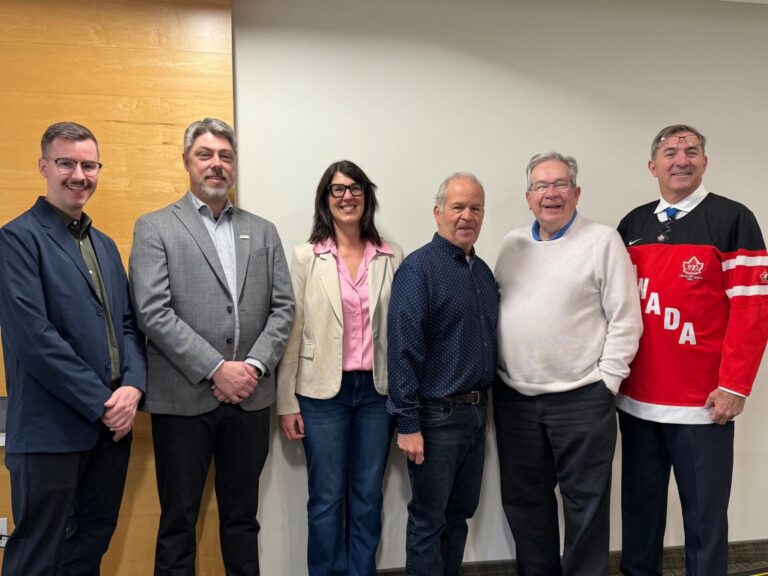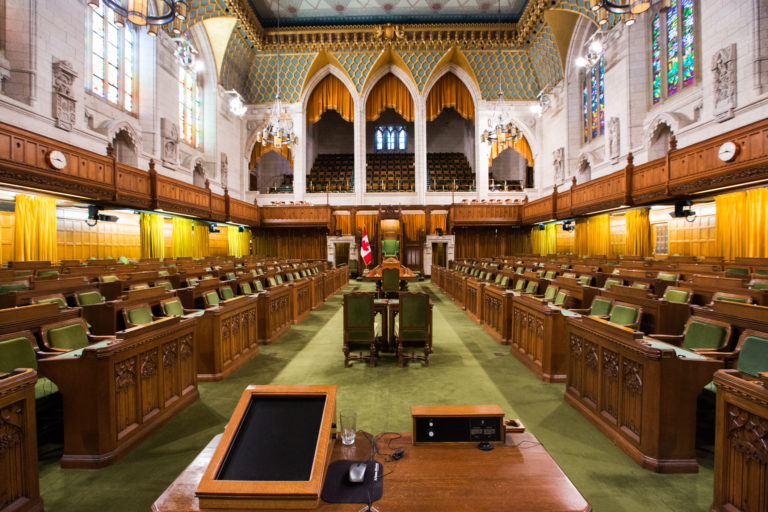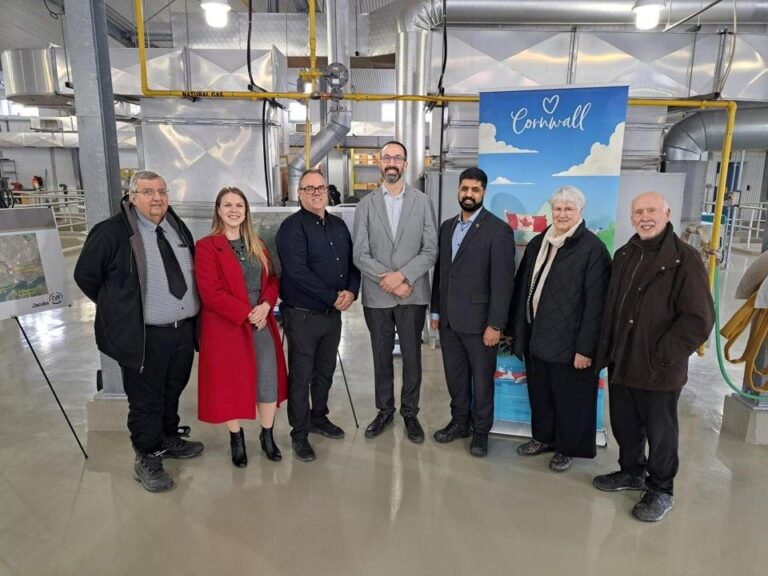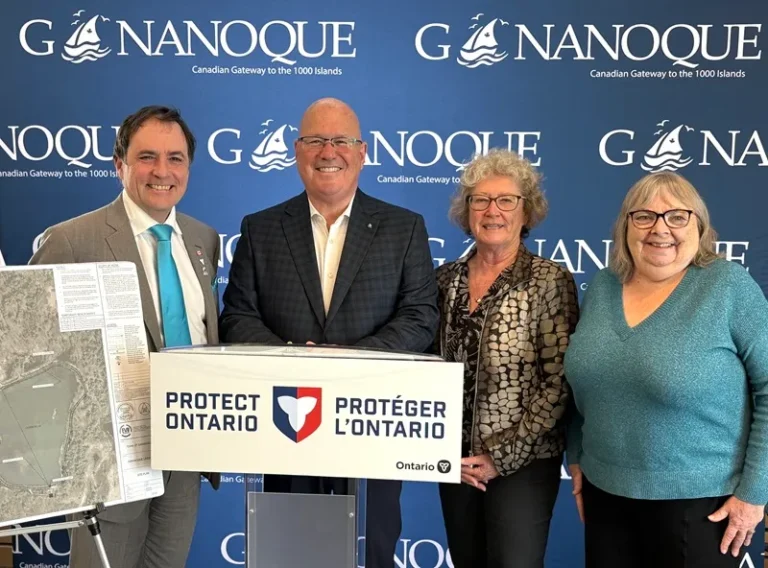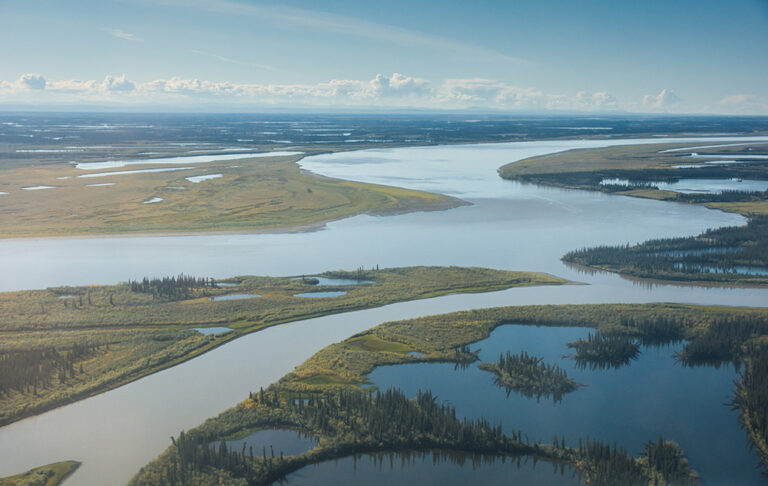Erika C. Bruce, PhD, and her late husband, Geoffrey F. Bruce, shared a vision for Canada: To be a world leader in freshwater policy. As a compassionate and well-traveled global citizen, Erika has seen first-hand the challenges faced by water poor communities. She and Geoffrey shared the concern that Canada, a country with such exceptional freshwater resources, does not have stronger policies in place to protect these precious bounties.
“Freshwater is not only important for our people, communities, and businesses,” said Erika. “It’s a strategic resource that impacts issues of Indigenous rights, issues of security, political conflict, transportation, privatization and more—all aspects of policy and governance.”
It was this perspective and her late husband’s long-time commitment to advancing freshwater policy that prompted her to establish the Geoffrey F. Bruce Fellowship at Toronto Metropolitan University (TMU) five years ago.
The Bruce Fellowship, which funds two fellows each year, has made important contributions from its inception with impacts that continue to grow with each new cohort of fellows. Dr. Carolyn Johns, a professor in the department of Politics and Public Administration at TMU who oversees the fellowship, describes it as having important “ripple effects,” helping expand the freshwater policy community, as well as the thinking and research that can shape Canadian water policy.
“I am very grateful to Erika for creating this incredible opportunity for us to shape the future of freshwater policy and support the next generation of freshwater policy leaders,” said Carolyn.
“Freshwater is not only important for our people, communities, and businesses. It’s a strategic resource that impacts issues of Indigenous rights, issues of security, political conflict, transportation, privatization and more—all aspects of policy and governance.”
– Erika Bruce
Creating a water policy community
For Dr. Edgar Tovilla, one of the inaugural Fellows, one of the greatest benefits of becoming a Bruce Fellow was the opportunity to engage with diverse members of the water policy community, both through Carolyn’s network and the Water Policy Cafés that she established as part of the Bruce Fellowship.
“I was able to engage with a community of like-minded individuals brought together by our shared interest in freshwater policy,” said Edgar, who is now the Senior Manager of Waterworks Operations for the Municipality of Markham. “We were working on very diverse and different topics, which helped bring new perspectives to my research.”
Like many other Fellows, Edgar has remained connected with the community, attending the Water Policy Cafés whenever possible and participating in shared initiatives like a formal submission on the creation of the Canada Water Agency.
Dr. Madeleine Martin, a 2018-2019 Fellow, also saw great value in the welcoming and supportive community fostered by Carolyn. “I workshopped my PhD proposal there and got very helpful feedback,” she said. “It’s a very friendly environment to discuss things because everyone is looking to lift each other up and help out.”
Madeleine, who recently accepted a role with Natural Resources Canada, added that the Water Policy Café “helped create a bridge between academic and non-academic world. It’s easy to get tunnel vision in academia, but engaging with people working in water policy in other settings helped me explore other options and advance my career.”
Similarly, current Fellow Lana Marcy shared that participating in the Water Policy Cafés and meeting some of the other fellows made her even more excited about being part of the community. “The Water Policy Café has been one of the best experiences of my Master’s program,” she said. “I felt so empowered and proud of the work that I was participating in and contributing to, and it was a great source of new resources.”
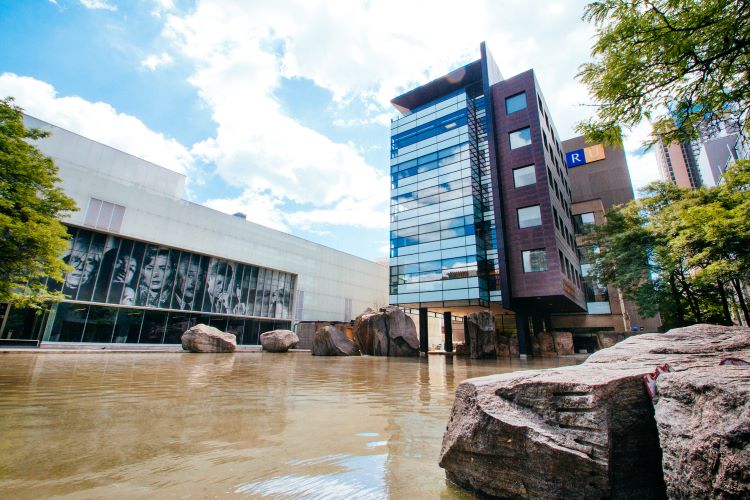
Shaping policy through Fellowship-supported research
This supportive community is informing diverse research with real-world impacts. For some fellows, such as Edgar Tovilla, this involves direct application. Not only does he apply his research in his day-to-day work for the city of Markham, he is also involved in developing new stormwater and wastewater management standards with the Canadian Standards Association and the Ontario Ministry of the Environment. Edgar also supervised one of the other Bruce Fellows, Andre Setodeeh, in a municipal water policy internship that resulted in Andre landing a job with Toronto Water.
For others, their research may be used to inform policy development, shaping the future of freshwater in Canada. 2020-2021 Fellow Miranda Black’s research on Toronto Island and surrounding waters and the ways that Indigenous Peoples are calling out for better water stewardship, including water and land claims, could help provide important context for water policy in the Great Lakes. Miranda, one of two Indigenous Fellows to date, hopes that her research will “help policy makers see Indigenous Peoples as inherent rights holders that need to be recognized and sovereign nations.”
Edward Millar, a 2019-2020 Fellow, also sees an opportunity for his research on participatory water monitoring programs in Ontario and citizen science to inform how public policy approaches and reflects citizen science. Edward also found that being a Bruce Fellow shaped his research, with the explicit policy focus encouraging him to think more about this than he might have otherwise. “It helped ground my exploration in concrete outcomes that could be relevant outside of academia,” he said. “There is a lot of community-based water monitoring in Canada but it hasn’t historically been at the forefront of policy here. That’s starting to change. I hope that my research can help inform how citizen science is an important part of water policy and to make sure it is valuable in protecting freshwater.”
Continuing legacy
“The first five years of the Bruce Fellowship have exceeded my expectations,” said Carolyn Johns. “I see even greater possibilities for the next five years and beyond. I look forward to attracting more exciting candidates from a wider range of disciplines, such as law and political science, and institutions, as well as creating more applied research partnerships. We’re also planning to host an international water policy conference in 2023 and are working to build a close relationship with the newly formed Canada Water Agency, hopefully one that creates even more value and opportunities for our Fellows.”
Erika Bruce shares this enthusiasm. “I have been very impressed and gratified by the calibre of the Fellows and find it quite extraordinary how they have devoted themselves—their time and their energy—to researching subjects that are so important and often overlooked,” she said. “I hope that ultimately they will be able to contribute in a practical sense, with the application of recommendations from their research to water policy.”
Dr. Pam Sugiman is Dean of Arts at Toronto Metropolitan University. The Faculty of Arts houses the Department of Politics and Public Administration and offers a Master’s degree in Public Policy and Administration, as well as a PhD in Policy Studies.


